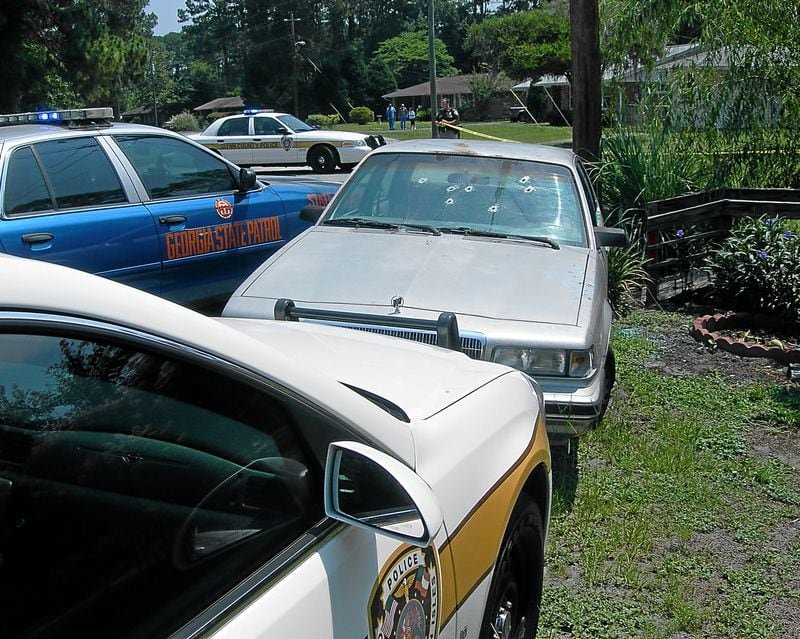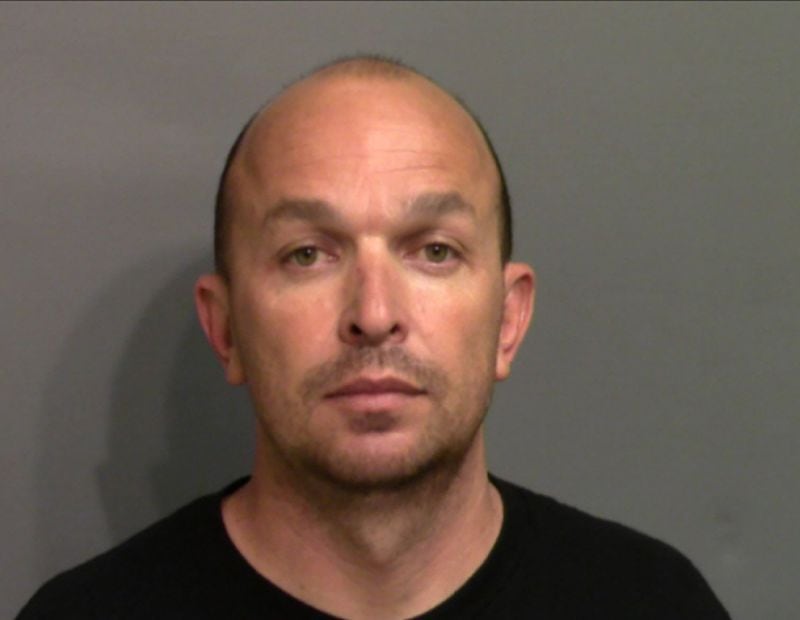Matthew Dages
Fired La Mesa cop found not guilty of lying about controversial arrest
APACHE JUNCTION AZ (IFS) -- It was a given in this case. Matthew Dages was going to walk away, like all white police officers who choose to destroy Black people, just because he is right with his gun on his belt and talking like a gangsta in the City's uniform of disgrace. If he was so, innocent then he would not have been fired from his great job.
Mr. Dages won this battle, but his days are numbered too. Multiple court cases remain for this brave white officer. By all means, keep this image in your files, because he will be seeking employment elsewhere as a gun-toting hombre, that will kill your insurance and your city. Mr. Dages should seek work in the north part of Idaho where they just love his kind. - KHS
===================================
On Dec. 10, former La Mesa Police Officer Matthew Dages was found not guilty in a criminal case where he stood trial for allegedly lying on a May 27, 2020 police report detailing how he arrested 24-year old Amaurie Johnson, for suspicion of smoking near the Grossmont Trolley station.
Dages was later fired from LMPD.
Now, the only thing standing between Dages and his old job is an upcoming April 2022 civil court case which has nothing to do with whether Dages violated the law with Amaurie’s arrest, and instead hinges on the potentially invalid process of how the city of La Mesa handled terminating him from the police force.
According to the Writ of Administrative Mandate filed by Dages against the Personnel Appeals Board of the city of La Mesa in March 2021, the city issued a Notice of Intent on or about July 21, 2020 to terminate Dages based on allegations of violations of the Police Department Rules and Regulations.
Dages denied those allegations at the time and the city participated in a due process hearing along with him on or around Aug. 6, 2020. The next day, they issued a Final Notice of Discipline and terminated Dages.
After another appeal on Aug. 14, 2020 and subsequent hearings Oct. 20-24, Nov. 24 and Dec. 9, 2020, the appeal board came to the same conclusion as back in July: They denied the appeal.
Dages maintains those findings and the decision to terminate him were not served as required by California Code of Civil Procedure section 1094.6.
California Code of Civil Procedure section 1094.6 establishes time limits for judicial review of the decision of a local agency and requires a petition to be filed “not later than the 90th day following the date on which the decision becomes final.”
Besides demanding reemployment, Dages is also asking for back pay and benefits, with interest paid to him, as well as all of his attorney’s fees involved with the case. Additionally, he is asking to have all paperwork associated with the incident removed from his personnel record, essentially resetting the clock on almost two years since he arrested Johnson.
A peaceful protest-turned-riot that took place three days after that arrest devolved into a downtown La Mesa riot which left several buildings burnt to the ground, prompting calls from the Community Police Oversight Board to address police practices.
Board chairperson Janet Gastanos said while she is “not entirely surprised by the jury’s decision involving Mr. Dages’ criminal case, I do believe that his dismissal from the LMPD involves a number of concerns that will be addressed on their own merit in April” when the civil case is tried.
La Mesa Police Officers Association did not respond to requests for comment on the case.
City Attorney Carlo Tomaino said “the city cannot comment on active or pending litigation” and could not offer comment on the case.
At this point, Dages remains unemployed by the city.
“The criminal court’s acquittal of Mr. Dages does not overturn his employment dismissal,” La Mesa Communications Manager Perri Storey said.
Dages’ civil personnel case is currently scheduled for April 1, 2022.
https://eccalifornian.com/fired-la-mesa-cop-found-not-guilty-of-lying-about-controversial-arrest/











